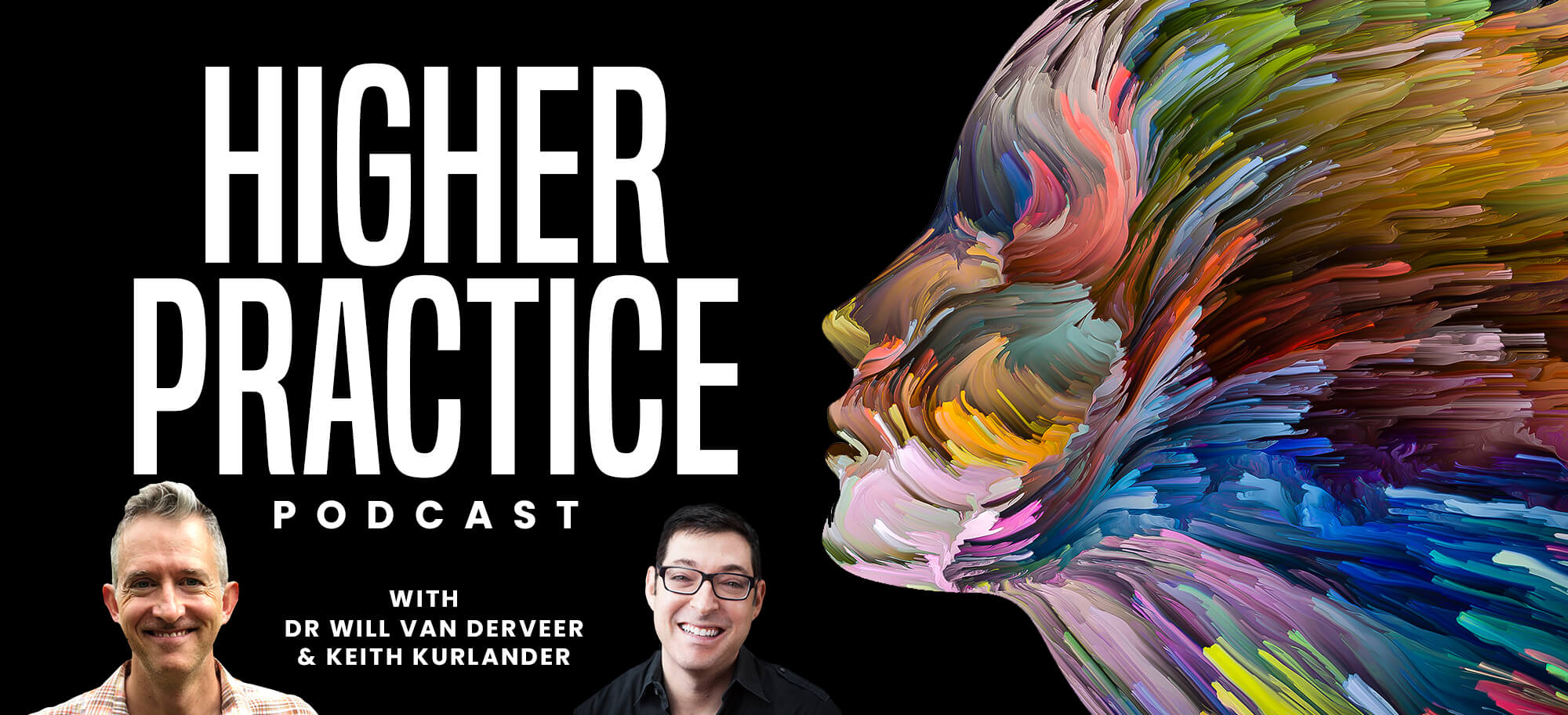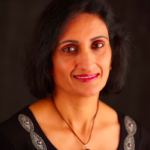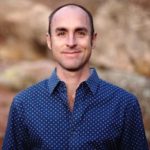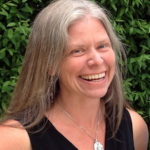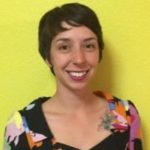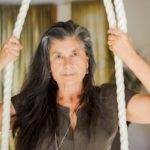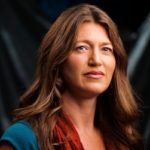Episode 11

Sujatha Reddy, MS, LPC, BAMS
Civilized life has many amazing benefits. We can create great structures and share information with each other. But as we all know it also has its complications. Some of the biggest issues in civilized societies are interpersonal relationships, our physical health and how we stay well in our own mind. Mental illness is actually quite a serious issue across the world in developed and developing countries.
Because of these types of issues that come along with civilization, people throughout time have been using different systems to address the health of the mind and physical body.
Ayurveda is one of the oldest systems of medicine originating in India roughly 5,000 years ago when sages were the predominant healers in society. A little-known fact is that long before western psychology systems were developed, Ayurveda had it’s own psychological framework that’s vast in both theory and clinical applications.
In this episode, you’re going to learn about the principles of Ayurveda, how it translates into a modern psychological system, an analysis of the mind from this perspective, and a lot of other really interesting information.
Our guest today, Sujatha Reddy, studied Ayurveda in India and became a Vaidya in 1988 with a degree from Bangalore University. She moved to the United States nearly 30 years ago and has been practicing Ayurveda since. She specializes in Ayurvedic psychology and its application for mental health. She earned her Master’s Degree in Mental Health Counseling from the University of Dayton and is also a Health and Wellness Coach.
Episode 10

Guili Zavaschi, MA, LPC
Ayahuasca is a traditional amazonian plant medicine that contains the hallucinogenic substance DMT. You may have heard of it because Ayahuasca has become quite popular among spiritual seekers in recent years. There have been many articles and documentaries about it, and often the news coverage exploits the problems people have experienced with it.
However, this traditional medicine is also used in certain areas of the world as a way to help addicts in recovery and the results are quite remarkable.
In this episode, we have a special guest, Guili Zavaschi, a former therapist at the Takawasi Rehab Center in Peru. Takawasi is one of the few addiction centers in the world legally using Ayahuasca for the treatment and recovery from devastating addictions. Guili shares his first-hand experience as a therapist working with patients at Takawasi, the amazing process he witnessed patients go through, and an exploration into Ayahuasca’s miracles and potential dangers.
Episode 09

Katie Asmus, MA, LPC
We live in a fast-paced environment. Very few people are immune to the distracting side of technology that can dismember our connection to the natural world. But nature is forgiving in many ways and waiting for us to reconnect with her whenever we choose.
There’s something beautiful about the natural world. It doesn’t seem to hold grudges like people even if we do things like hurt the environment. Sure nature seeks balance and will course correct itself, but it still seems to offer us an invitation into connection on every hike we take, whenever we smell a bouquet of flowers on our table, and hear birds chirping out of the window.
Our connection with nature is paramount to feeling connected to something beyond the self. Without this connection we can feel isolated, withdrawn and even empty. So, this brings into question a very important topic that we are going to discuss today. What role does nature have in psychotherapy?
In this episode, you’re going to hear about wilderness therapy and nature-based therapy and the ways they differ. One of the most compelling topics in this interview is how you can use nature-based ritual and ceremony to foster healing in your clients so that you are not always relying on yourself as the primary healer.
Our guest, Katie Asmus is a master teacher and psychotherapist specializing in the modalities of wilderness and somatic therapies with a focus on ceremony and ritual, finding one’s purpose in life and somatic soul-based trauma work. She has been incorporating wilderness, adventure and relationship with the natural world into her professional and personal work for over 25 years.
Episode 08

Moriah Arnold
Have you ever had a client with physical or mental health symptoms that festered for months or years but you couldn’t get to the root cause? Most people face a mysterious condition in their lifetime that doctors, therapists and other healthcare professionals simply don’t have a concrete answer as to why this problem exists and what solution is appropriate.
In this episode, we have a courageous woman willing to share her personal story of a debilitating seven year journey of complex neurological and psychiatric issues that nearly ruined her life. After countless doctors, misdiagnoses and failed treatment protocols, her own intuition led to an extremely simple discovery that eliminated her symptoms within days and probably saved her life.
Her story is an important reminder to mental health professionals that sometimes people who display the most complex psychiatric symptoms actually have a root cause that is overlooked and relatively simple to rule out.
Episode 07

Will Van Derveer, MD
The medical model commonly found in psychiatry focuses heavily on categorizing a constellation of symptoms into mental health disorders. This is a useful approach when a person needs medication to reduce those symptoms in order to function in their lives. However, where this model falls short is in truly identifying the root causes of mental suffering.
Many links have been made to brain chemistry, genetics and family of origin dynamics, but these don’t usually present a holistic perspective that’s curative in nature. In this episode, you’re going to learn about a different approach to psychiatry. Integrative psychiatrists look into the root causes of mental illness. Many aspects of mental illness are viewed as imbalances in the body created by a number of factors.
Dr. Will Van Derveer is the founder and medical director of the Integrative Psychiatric Healing Center in Boulder, Colorado where he has practiced integrative psychiatry for 15 years. He holds an adjunct clinical faculty position at the University of Colorado School of Medicine and is the course director of the psychiatry resident course on integrative psychiatry.
Episode 06

Susan Aposhyan
Imagine if your body could talk to you..well, it actually does. I’m sure you’ve heard a bunch of things about mindfulness, presence and embodiment. And you may have explored these concepts to varying degrees. In this episode, we are going into the depths of somatic psychology with a pioneer and expert looking specifically at the healing potential of an embodied therapist.
We’re going to explore some really interesting concepts in biology and cellular physiology that impact mental health and wellness. And of course, the role of embodiment in a therapeutic setting. It’s best to listen to this at normal speed because you’re going to get taken through some exercises that are really essential to understanding the concept of presence and connection to your body.
Our guest today, Susan Aposhyan, is a pioneer in the field of somatic psychology, training helping professionals internationally in the Body-Mind Psychotherapy approach that she developed. She also developed and directed one of the first graduate degree programs in somatic psychology at Naropa University in Boulder, Colorado.
Episode 05

Carmen Cool
Imagine a world where body weight is not an issue in order to live a joyous and free life and that your body was designed perfectly.
No matter who you are or where you come from you have a body. Everyday we are relating to this body on conscious and unconscious levels. We think about what our bodies look like, feel like, and the size of our body.
In this episode, we’re going to have a conversation about body size and mental health that is not predictable. This new type of dialogue about the body challenges me and it will also probably push you. I know for myself it’s an essential move toward a healthier way to be in the bodies that we all inhabit.
Carmen Cool, Founder and Executive Director of the Boulder Youth Body Alliance, Named “Most Inspiring Individual” in Boulder County in 2012, Recipient of the 2013 Excellence in Advocacy Award from the Eating Disorders Coalition is extremely passionate and fierce about her work in advocating for a new paradigm of how we relate to our bodies.
Episode 04

Arielle Schwartz
Trauma theories and therapies have been gaining a lot of attention in our field in the last decade. It’s really for a good reason. Neuroscience and the advancement of somatic therapies have unlocked new ways of working with trauma that were very difficult to treat.
We’re going to discuss Complex PTSD and how it differs from what typically comes to mind when we think of trauma. Complex PTSD is often interpersonal trauma that happened over a period of time during early childhood. Even within this definition there are degrees of how severely a person is traumatized and many people walking down the street, whether it’s you or me, may have a degree of Complex PTSD that we are attempting to overcome in ourselves.
We will explore what’s happening in the brain when we can’t process an overwhelming event, why it’s important to distinguish between the different forms of trauma, and also differential diagnosis between others disorders.
A major piece to healing complex PTSD comes from understanding post-traumatic growth models, and how resiliency and wisdom often rise from the places that were so difficult in our past.
Dr. Arielle Schwartz is an EMDR Therapy consultant and the author of The Complex PTSD Workbook: A Mind-Body Approach to Emotional Control and Becoming Whole. She has spent nearly two decades researching and understanding the workings of trauma and how to heal.

